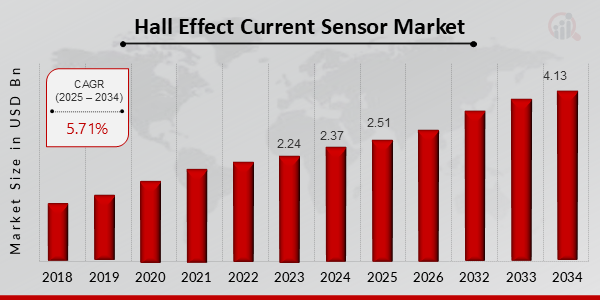
As the world transitions toward smarter energy systems, electric vehicles, and industrial automation, precise and efficient current measurement becomes increasingly vital. Hall Effect current sensors have emerged as a cornerstone technology, enabling contactless, accurate current detection in a wide range of applications. The global market for Hall Effect current sensors is experiencing notable growth, driven by the demand for energy efficiency, safety, and performance monitoring.
https://www.marketresearchfuture.com/reports/hall-effect-current-sensor-market-24017
What is a Hall Effect Current Sensor?
A Hall Effect current sensor measures current by detecting the magnetic field generated around a conductor. Based on the Hall Effect principle—discovered by Edwin Hall in 1879—these sensors convert the magnetic field into a voltage signal, which can be measured to determine the current.
Key benefits include:
-
Non-intrusive and contactless measurement
-
High accuracy and fast response
-
Isolation from high voltage circuits
-
Compact size for embedded systems
Market Overview
The global Hall Effect current sensor market was valued at over USD 1.1 billion in 2023 and is projected to reach USD 2.5 billion by 2030, growing at a CAGR of around 10% during the forecast period. Key market drivers include:
-
Increased electrification across transportation and manufacturing
-
Rising demand for renewable energy integration
-
Growth in consumer electronics and battery management systems
-
Enhanced safety and compliance requirements in industrial automation
Key Applications
1. Automotive
-
Electric vehicles (EVs) use Hall Effect sensors for battery monitoring, motor control, and power distribution.
-
Used in hybrid systems, regenerative braking, and onboard chargers.
2. Industrial Automation
-
Motors, drives, and control systems rely on current sensors for overload protection and energy monitoring.
-
Robotics and smart manufacturing systems also benefit from real-time current sensing.
3. Renewable Energy
-
Essential in solar inverters, wind turbines, and energy storage systems to monitor current flow and ensure safe operation.
4. Consumer Electronics
-
Smartphones, laptops, and gaming consoles use these sensors for power management and thermal control.
5. Healthcare and Medical Devices
-
Used in MRI machines, surgical robots, and power supply systems for accurate current control.
Market Trends
-
Miniaturization and Integration: Demand for compact, integrated sensor ICs that can be embedded in small devices is rising.
-
High Bandwidth and Accuracy: New sensor models are being developed for high-frequency applications with minimal error rates.
-
Wide Current Range Detection: Sensors are now capable of measuring both low and high currents accurately, broadening their usability.
-
Adoption in Smart Grids: The transition to intelligent power distribution networks boosts demand for real-time monitoring sensors.
Regional Insights
-
Asia-Pacific: Dominates the market due to the rapid growth of EV manufacturing in China, Japan, and South Korea. Strong demand from electronics and industrial sectors.
-
North America: Focused on renewable energy adoption and electrification in automotive sectors.
-
Europe: Emphasis on green energy, smart cities, and automotive innovation drives steady market growth.
Challenges
-
Cost Sensitivity: While advanced sensors offer more features, their cost may deter adoption in price-sensitive markets.
-
Competition from Other Technologies: Shunt-based and optical current sensors offer alternatives in some applications.
-
Electromagnetic Interference (EMI): Needs careful shielding in high-noise environments to maintain performance.
Future Outlook
The Hall Effect current sensor market is expected to see robust expansion, driven by:
-
The rise of electric mobility
-
Global decarbonization initiatives
-
Industrial digitalization and smart monitoring systems
-
Advancements in sensor design and integrated electronics
As industries evolve toward precision, intelligence, and efficiency, Hall Effect sensors will remain integral to managing and optimizing electrical systems.

